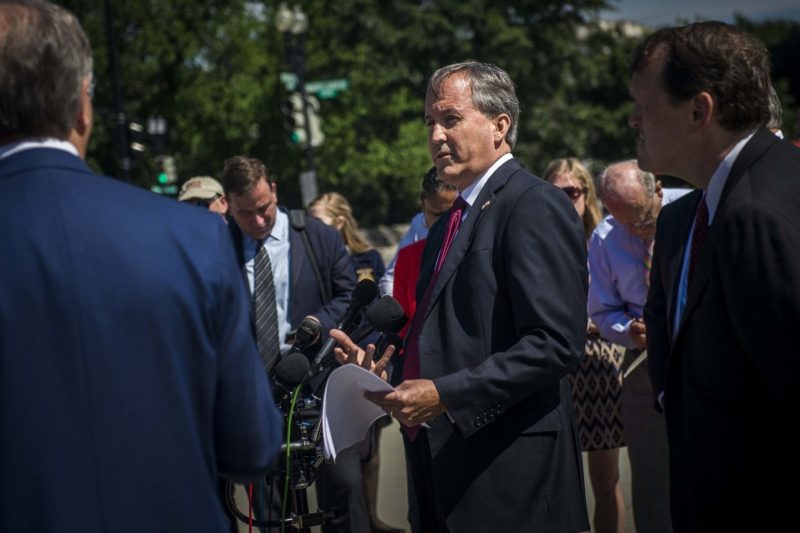Federal Judge Blocks the Anti-Choice Lobby’s Favorite New Law in Texas (Updated)
The ruling came one day before the medically unnecessary law was set to take effect, preventing the restrictions from kicking in while pregnant people in Texas are still reeling from the impact of Hurricane Harvey.

UPDATE, September 8, 12:01 p.m.: A federal judge on Thursday extended a temporary restraining order on the Texas GOP law banning the most common method of second trimester abortion care. The law will be blocked until November 2, reported the Dallas Morning News.
A federal judge on Thursday issued a temporary restraining order blocking Texas from enforcing a law that bans the most common type of second trimester abortion care.
The ruling came one day before the medically unnecessary law was set to take effect, and prevented the restrictions from taking effect while pregnant people in Texas are still reeling from the impact of Hurricane Harvey.
Nancy Northup, president and CEO of the Center for Reproductive Rights, said in a statement that the ruling was a victory for the right to access safe and legal abortion care. “Today’s order will ensure women can continue to get the vital care they need while we work to prevent these misguided laws from taking effect,” Northup said.
Republican Gov. Greg Abbott in May signed into law the most sweeping abortion rights restrictions since passage of the omnibus anti-choice bill known as HB 2. SB 8 prohibits physicians from performing a so-called dismemberment abortion—a phrase popularized by anti-choice organizations—unless necessary in a medical emergency. The law targets a procedure known as dilation and evacuation (D and E), which is frequently used during second-trimester abortions.
U.S. District Court Judge Lee Yeakel wrote in the ruling that the law would force physicians to provide abortion care using procedures that are “more complex, risky, expensive, difficult for many women to arrange, and often involve multi-day visits to physicians, and overnight hospital stays.”
The only other procedure available to terminate a second trimester pregnancy is induction abortion, in which a physician induces labor using medication. Induction abortions are less common than the D and E procedure for a variety of reasons, according to a report by Megan K. Donovan, senior policy manager at the Guttmacher Institute.
Heather Busby, executive director of NARAL Pro-Choice Texas, said in a statement that the law is part of a “coordinated national strategy” by opponents of abortion rights.
“This bill criminalizes physicians for exercising their best medical judgment and is a dangerous intrusion into the doctor-patient relationship,” Busby said. “It is long past time for lawmakers to stop playing politics with our health care and stop passing measures that risk patients’ health and safety.”
The bill is based on copycat legislation drafted by the National Right to Life Committee, an anti-choice organization that has successfully lobbied GOP lawmakers to pass the legislation in eight states.
Texas Attorney General Ken Paxton (R) vowed to continue defending the anti-choice law. The decision blocking the law comes a year after the U.S. Supreme Court’s decision striking down portions of HB 2, which cost the state more than $4.5 million in litigation costs.

